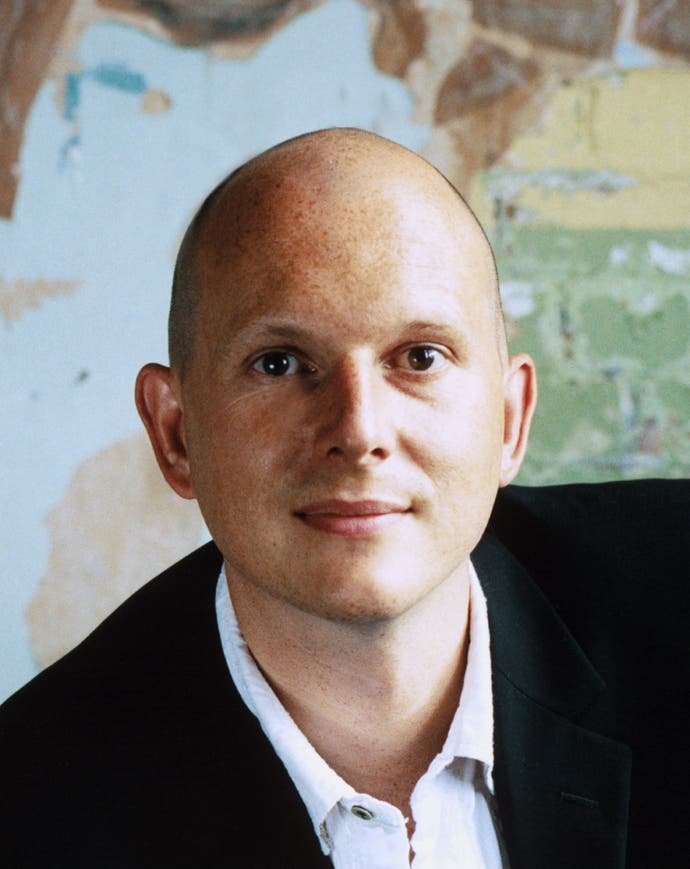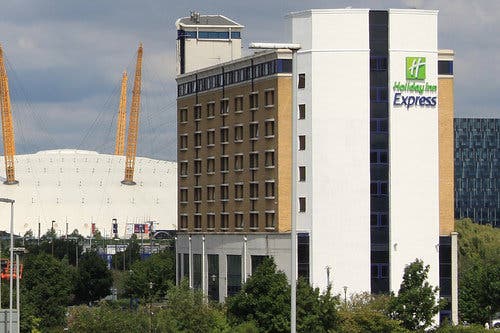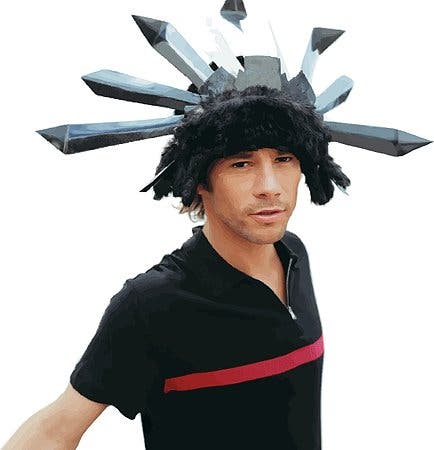PS2: The Insiders' Story
To mark the end of PS2 production, we're re-publishing our insiders' account of the console's success, featuring Chris Deering, Phil Harrison and more.
By all accounts, Harrison had a way of making things like this happen. "He had a fabulous gift for presentation. He was sort of like the Barack Obama of high tech," says Deering.
"He could explain complex things well and, having come from indie development, he was conscious of the lot in life developers face."
This might explain why he developed what became known as the Phil Harrison Stare. If you were given the Stare, you knew you were in trouble.
"Yeah. I don't know if I ever experienced his full wrath, but I've seen that glint in his eye," says Duncan.
"Every creative and developer in our company knew they had someone on their side who would stand up to the fluffy marketing idiots, who would make sure we were doing a great job and doing the games justice. He understood marketing as well, so that was a really dangerous combination. There was no hiding."

"People still hold a lot of respect for Phil and how straight down the line he was," notes Fargher. "He didn't dodge questions, no matter how difficult they were."
This made Harrison a favourite interviewee for games journalists, including me. And it was during an interview, years after I'd left Sony, that I found myself on the receiving end of the Phil Harrison Stare for the first time. I'd probably asked him something facetious about PS3. I can't remember the question, or his answer, but I can't forget the way he looked back at me with a gaze so icy it could have frozen lava.
"I'm not one for shouting and banging the table, but maybe I communicate my concerns in other ways," says Harrison. "But we were all in it together, we were all part of a team and we all wanted to be successful. I certainly didn't manage by fear." Everyone I talked to would agree with that.
They'd also agree that Chris Deering helped to foster the feeling of teamwork which existed within SCEE. He famously knew everyone's name and what their role was. And along with having a smart business brain, he's a man who knows how to party.
"The company had a 'work hard, play hard' mentality," says Harrison. "No one embodied that more than Chris Deering, the guy who would be last to leave the bar but always first in the office the next morning."
Everyone's got a Deering story. For many people it's the time he somehow got the bar of the Greenwich Industrial Park Holiday Inn to stay open till 3am, after what seemed like the whole company had gathered there following a Christmas party.
Some versions say Deering achieved this by making a single phone call, presumably to the boss of Holiday Inn himself. Others have him asking the bar staff to name their price. Many have him buying boxes of Grolsch and handing bottles round to the remaining stragglers even after the bar finally closed.

Not even Deering himself is sure of the real story. "I may have paid the staff a couple of hundred quid to stay on longer. It was pumped up a bit as some sort of magic trick, but it wasn't a big thing," he says.
I was at that after-party, stumbling round in a dress I'd never let a daughter of mine wear, trying to ponce a cigarette off someone. "Oi mate," I said, tapping some bloke on the shoulder. "Got a spare fag?"
The man turned round and I almost fell over. I'd been at Sony for less than a month and I'd just called the big boss man "mate".
"Aaaa," I think I said. "Sorry. Hello. My name is Ellie. I work in, er, Creative Services."
"I know who you are, my dear!" said Deering with a hearty chuckle. "Now then, let's see if we can't find you that cigarette." And with that he began wandering around the bar, asking everyone he met for a fag "for my new friend Ellie, here". (I've since given up, by the way, so if I die of lung cancer it won't be his fault.)
With this sort of thing happening quite a lot, it's no surprise that it was under Deering's watch Sony gained a reputation for being a bit rock and roll.
There were conferences in the South of France, Malta, Portugal and the Canary Islands. There were meetings which would take place in various glamorous locations over the course of several days. "I remember starting a meeting in a hot spring in Reykjavik, then next we were all drinking vodka in Red Square," says David Reeves. "And Chris Deering had a Russian hat on."
Then there were the parties. The ones held in warehouses and under arches and in car parks. The ones where Sony staff and invited guests got to enjoy live sets from the likes of Pulp, Macy Gray, The Foo Fighters, Faithless...

"It just went with the time," says David Wilson. "We were riding the crest of a wave of optimism about being part of the social media landscape and there were a lot of people talking about videogames being the new rock and roll. It was completely fitting with that."
The best and most ridiculous party was held in East London. It took place in a warehouse big enough to hold the indoor fairground Sony had ordered as well as a huge stage.
"Jamiroquai walked out wheeling this PS2 and a TV on a trolley, going on about how he didn't want to stop playing to do the gig. We were so in awe," says Daniel Brooke.
Despite being booked to play for 40 minutes, Jamiroquai went on to perform a two-hour set. At one point Ronnie Wood, whose son's events company had organised the event, joined Jay Kay on stage for an extensive jamming session.
"I heard later that all Jay Kay was told was he'd been booked to play this Sony gig. So he was expecting to walk out on stage to see a bunch of Japanese salesmen in suits and he was really worried," says Harrison.
"But just before he went on he snuck a look round the corner of the stage and saw what kind of audience it was, and he knew it was going to be a good night."








